About This Project
On this episode you are going to find out how to be set free from the negative thoughts destroying your mind, obsessing about others, and the breaking your life and other people’s lives.
You are going to receive the fruit of God’s Word: joy, happiness, and contentment!
The 10th Commandment: what is it and why did God save it for last? Well, it’s been argued to be the only commandment that deals with our thoughts as opposed to our actions.
We are going to spend an entire episode talking about and explaining the law concerning covetousness!
It’s the last commandment and– there is a big reason why we’re doing one whole episode on it.
This commandment is tied to all the other commandments.
There’s a big stain of covetousness on our hearts, but don’t take this one negatively. This is a positive word as God’s Word always is!
☑️ You can partner with us to get the message out and become a monthly sponsor at https://timhatchlive.com/support/ OR on the Cash App with cashtag: $timhatchlive
💥 Become a monthly partner and enjoy loads of exclusive channel perks at http://patreon.com/timhatchlive 👈👈👈
✳20% of all giving will be tithed back out to The American Bible Society and Project Rescue.
Start [0:00]
▶ The Cost and Conquest of Coveting [1:44]
▶ What is coveting? [5:05]
▶ What is Christian coveting? [13:31]
▶ What did Jesus say about coveting? [16:45]
▶ Is coveting the same as desire? [23:32]
▶ What isn’t coveting? [26:17]
▶ What are some examples of coveting? [27:28]
▶ Where does coveting begin? [37:49]
▶ How does coveting hurt our minds and bodies? [43:58]
▶ What happens to us when we covet? [45:50]
▶ Is coveting linked to depression? [46:15]
▶ How to be set free from negative thoughts, obsessing about others, and breaking your life? [47:58]
▶ What is the neuroscience of gratitude and effects on the brain? [51:25]
▶ What are tricks to remembering the 10 commandments? [54:30]
▶ What are 10 words joining God in recreating? [56:05]
▶ How is God different? [56:32]
Exodus 20:17 (ESV) “You shall not covet your neighbor’s house; you shall not covet your neighbor’s wife, or his male servant, or his female servant, or his ox, or his donkey, or anything that is your neighbor’s.”
Deuteronomy 5:21 (ESV) “ ‘And you shall not covet your neighbor’s wife. And you shall not desire your neighbor’s house, his field, or his male servant, or his female servant, his ox, or his donkey, or anything that is your neighbor’s.’
Scriptures Studied: Genesis 3:6; Isaiah 14:13-14;Exodus 20:17; Exodus 20:17; Judges 14:1-3; Joshua 7:1; Joshua 7:20-21; John 12:5-6; Matthew 26:14-16; Luke 22:1-3; Philippians 1:18; Philippians 1:21; Philippians 2:3; Philippians 3:6; Philippians 4:4; Philippians 4:11-13; 1 Timothy 6:17-19; Hebrews 13:5; Matthew 6:1; Luke 12:13-21; Romans 7:7-9; Psalm 145: 14-6
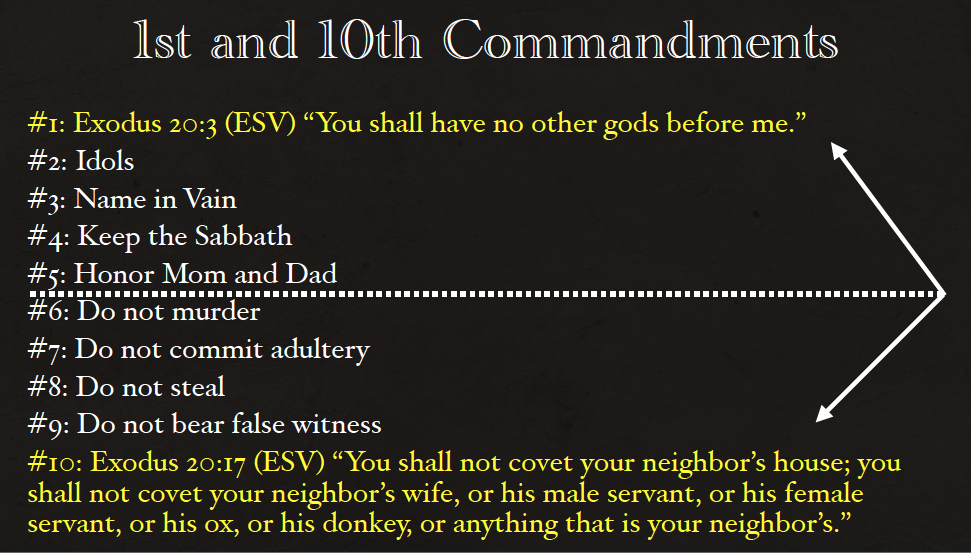
COVETING (our outline)
- What it is.
- Hebrew: “chamad” – “desire, yearn for, covet, lust after” someone or something, specifically for one’s own use or gratification.
- Inward not outward. (First commandment).
- Coveting is the SEED of bad behavior toward our neighbor.
- First Seen: Genesis 3:6 (ESV) So when the woman saw that the tree was good for food, and that it was a delight to the eyes, and that the tree was to be desired to make one wise, she took of its fruit and ate, and she also gave some to her husband who was with her, and he ate.
- Where it Happened FIRST: Isaiah 14:13–14 (ESV) You said in your heart, ‘I will ascend to heaven; above the stars of God I will set my throne on high; I will sit on the mount of assembly in the far reaches of the north; 14 I will ascend above the heights of the clouds; I will make myself like the Most High.’
- What it is NOT.
- Do not confuse coveting with all desire.
- “When God saves you, He doesn’t make you passionless.” Adrian Rogers
- “Pride gets no pleasure out of having something, only out of having more of it than the next man. We say that people are proud of being rich, or clever, or good-looking, but they are not. They are proud of being richer, or cleverer, or better-looking than others.” – C.S. Lewis
- Exodus 20:17 (ESV) “You shall not covet your neighbor’s house; you shall not covet your neighbor’s wife, or his male servant, or his female servant, or his ox, or his donkey, or anything that is your neighbor’s.”
- What it looks like. (Biblical Examples)
- Samson:
- Judges 14:1–3 (ESV) Samson went down to Timnah, and at Timnah he saw one of the daughters of the Philistines. 2 Then he came up and told his father and mother, “I saw one of the daughters of the Philistines at Timnah. Now get her for me as my wife.” 3 But his father and mother said to him, “Is there not a woman among the daughters of your relatives, or among all our people, that you must go to take a wife from the uncircumcised Philistines?” But Samson said to his father, “Get her for me, for she is right in my eyes.”
- Achan:
- Joshua 7:1 (ESV) But the people of Israel broke faith in regard to the devoted things, for Achan the son of Carmi, son of Zabdi, son of Zerah, of the tribe of Judah, took some of the devoted things. And the anger of the Lord burned against the people of Israel.
- Joshua 7:20–21 (ESV) And Achan answered Joshua, “Truly I have sinned against the Lord God of Israel, and this is what I did: 21 when I saw among the spoil a beautiful cloak from Shinar, and 200 shekels of silver, and a bar of gold weighing 50 shekels, then I coveted them and took them. And see, they are hidden in the earth inside my tent, with the silver underneath.”
- Judas:
- John 12:5–6 (ESV) “Why was this ointment not sold for three hundred denarii and given to the poor?” 6 He said this, not because he cared about the poor, but because he was a thief, and having charge of the moneybag he used to help himself to what was put into it.
- Matthew 26:14–16 (ESV) Then one of the twelve, whose name was Judas Iscariot, went to the chief priests 15 and said, “What will you give me if I deliver him over to you?” And they paid him thirty pieces of silver. 16 And from that moment he sought an opportunity to betray him.
- Luke 22:1–3 (ESV) Now the Feast of Unleavened Bread drew near, which is called the Passover. 2 And the chief priests and the scribes were seeking how to put him to death, for they feared the people. 3 Then Satan entered into Judas called Iscariot, who was of the number of the twelve.
- Matthew 27:5 (ESV) And throwing down the pieces of silver into the temple, he departed, and he went and hanged himself.
- Where it begins.
- Social comparison
- Consider a rookie baseball player who earns $500,000 a year. He is, by any definition, rich. But say he plays on the same team as Mike Trout, who has a 12- year, $430 million contract. By comparison, the rookie is broke. But then think about Mike Trout. Thirty-six million dollars per year is an insane amount of money. But to make it on the list of the top-ten highest-paid hedge fund managers in 2018 you needed to earn at least $340 million in one year. 14 That’s who people like Trout might compare their incomes to. And the hedge fund manager who makes $340 million per year compares himself to the top five hedge fund managers, who earned at least $770 million in 2018. Those top managers can look ahead to people like Warren Buffett, whose personal fortune increased by $3.5 billion in 2018. And someone like Buffett could look ahead to Jeff Bezos, whose net worth increased by $24 billion in 2018… (The Psychology of Money, Horgan Housel
- Future obsessed. (When I have ___ I’ll be…)
- Past regrets. (See Ecclesiastes 7:10)
- Prayer-less living. (See James 4:2-3)
- Victimhood mindset.
- Pride – I deserve better than “them”.
- What it does.
- We tell ourselves, we deserve better (pride).
- We tell ourselves, others don’t deserve it (pride).
- We tell ourselves God doesn’t care (idolatry).
- We repeat Satan’s lie “God is holding out on you” (self-exaltation).
- We tell ourselves other people are the competition.
- How to defeat it.
- Philippians 1:18 (ESV) What then? Only that in every way, whether in pretense or in truth, Christ is proclaimed, and in that I rejoice. Yes, and I will rejoice,
- Philippians 1:21 (ESV) For to me to live is Christ, and to die is gain.
- Philippians 2:3 (ESV) Do nothing from selfish ambition or conceit, but in humility count others more significant than yourselves.
- Philippians 3:6 (ESV) as to zeal, a persecutor of the church; as to righteousness under the law, blameless.
- Philippians 4:4 (ESV) Rejoice in the Lord always; again I will say, rejoice.
- Philippians 4:11–13 (ESV) Not that I am speaking of being in need, for I have learned in whatever situation I am to be content. 12 I know how to be brought low, and I know how to abound. In any and every circumstance, I have learned the secret of facing plenty and hunger, abundance and need. 13 I can do all things through him who strengthens me.
- 1 Timothy 6:17–19 (ESV) As for the rich in this present age, charge them not to be haughty, nor to set their hopes on the uncertainty of riches, but on God, who richly provides us with everything to enjoy. 18 They are to do good, to be rich in good works, to be generous and ready to share, 19 thus storing up treasure for themselves as a good foundation for the future, so that they may take hold of that which is truly life.
- Hebrews 13:5 (ESV) Keep your life free from love of money, and be content with what you have, for he has said, “I will never leave you nor forsake you.
“Christian” Coveting
- Matthew 6:1 (ESV) “Beware of practicing your righteousness before other people in order to be seen by them, for then you will have no reward from your Father who is in heaven.
- Coveting can be a subconscious “Christian looking” activity when we do Christian things for the approval of others.
Jesus on Coveting
- Luke 12:13–21 (ESV) Someone in the crowd said to him, “Teacher, tell my brother to divide the inheritance with me.” 14 But he said to him, “Man, who made me a judge or arbitrator over you?” 15 And he said to them, “Take care, and be on your guard against all covetousness, for one’s life does not consist in the abundance of his possessions.” 16 And he told them a parable, saying, “The land of a rich man produced plentifully, 17 and he thought to himself, ‘What shall I do, for I have nowhere to store my crops?’ 18 And he said, ‘I will do this: I will tear down my barns and build larger ones, and there I will store all my grain and my goods. 19 And I will say to my soul, “Soul, you have ample goods laid up for many years; relax, eat, drink, be merry.” ’ 20 But God said to him, ‘Fool! This night your soul is required of you, and the things you have prepared, whose will they be?’ 21 So is the one who lays up treasure for himself and is not rich toward God.”
Paul on Coveting
- Romans 7:7–9 (ESV) What then shall we say? That the law is sin? By no means! Yet if it had not been for the law, I would not have known sin. For I would not have known what it is to covet if the law had not said, “You shall not covet.” 8 But sin, seizing an opportunity through the commandment, produced in me all kinds of covetousness. For apart from the law, sin lies dead. 9 I was once alive apart from the law, but when the commandment came, sin came alive and I died.
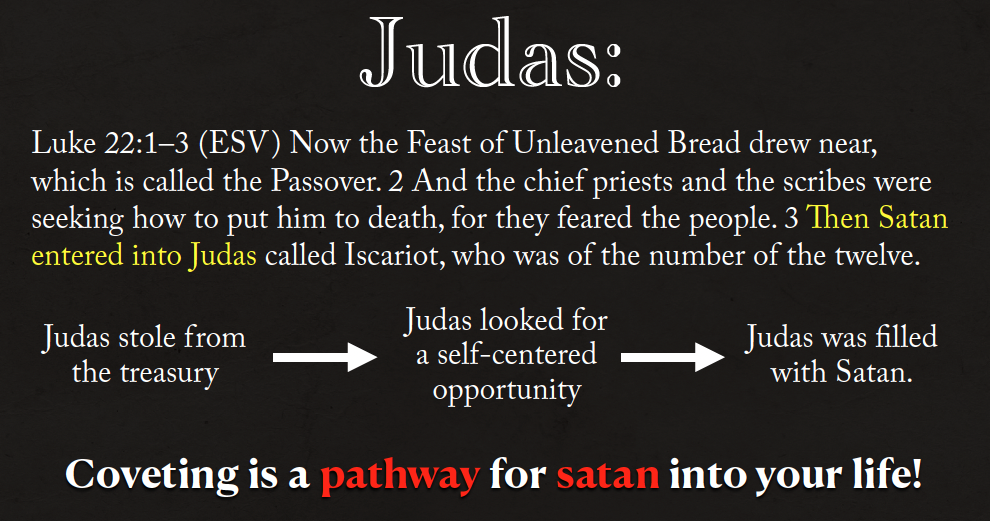
The Neuroscience of Gratitude and Effects on the Brain:
- Gratitude releases toxic emotions
- Gratitude reduces pain
- Gratitude improves sleep quality
- Gratitude aids in stress regulation
- Gratitude reduces anxiety and depression
10 Words joining God in recreating:
- No one closer to us than Him.
- No image to diminish Him in our minds.
- No living as if He wasn’t God and involved with us.
- No endless work but a goal-oriented pursuit of joy.
- Establish a culture of Honor with those before you.
- No damaging the image of God.
- No infidelity, rather faithfulness and permanence.
- No disrespect of private property.
- No falsehood undermining Justice.
- Be thankful for what God gives you!
A God Like No Other
- Psalm 145:14–16 (ESV) The LORD upholds all who are falling and raises up all who are bowed down. 15 The eyes of all look to you, and you give them their food in due season. 16 You open your hand; you satisfy the desire of every living thing.
👍 👍 👍 Pastor Recommends 👏 👏 👏
How can you be part of the Future of the TimHatch Live Podcast? https://www.youtube.com/live/QiydZNPz4mA?si=hKUdYic1EAL3TjNP&t=2969
Do Not Covet by Dennis Prager https://www.prageru.com/video/do-not-covet
⬇️ NEWS LINKS ⬇️
Gratitude Helps Curb Anxiety https://www.psychologytoday.com/us/blog/comfort-gratitude/202007/gratitude-helps-curb-anxietyResearch
The Neuroscience of Gratitude and Effects on the Brain https://positivepsychology.com/neuroscience-of-gratitude/
The causal relationship between envy and depression: A cross-lagged regression analysis https://www.researchgate.net/publication/347917919_The_causal_relationship_between_envy_and_depression_A_cross-lagged_regression_analysis
⬇️ Tim Hatch Live ⬇️
🎙 The Deep End dives deeper into Faith, Politics, Bible, & the world, Tues 7:30p & on your favorite podcast app
📖 Deep Dive Bible Study Kings of Compromise, Weds 7:30p
❓10 Questions with Tim, Q&A segment providing answers, LIVE 1st Thurs, Noon
👉 Ask Anything email ask@timhatchlive.com
🔵 WATCH MORE
🔵 BOOKS
🔵 SWAG
🔵 RUMBLE
🔵 FACEBOOK
🔵 TWITTER
🔵 INSTAGRAM
🔵 TIKTOK






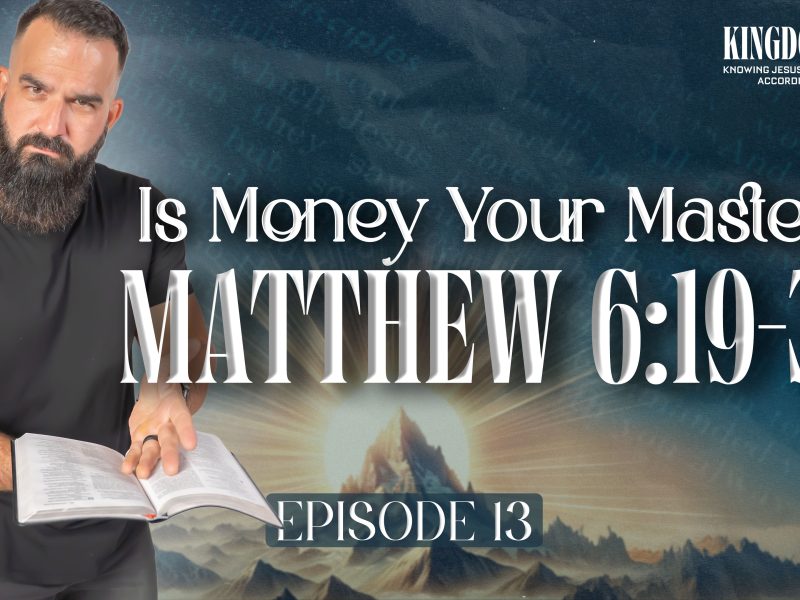

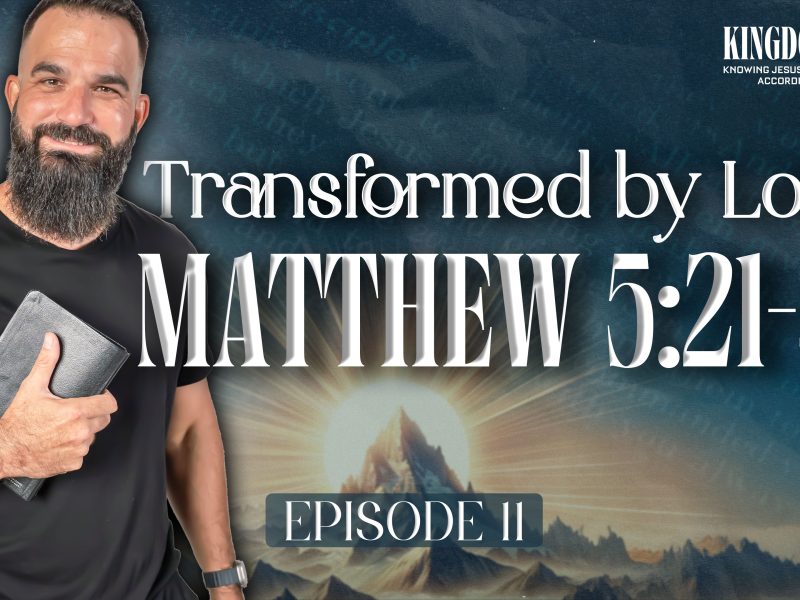
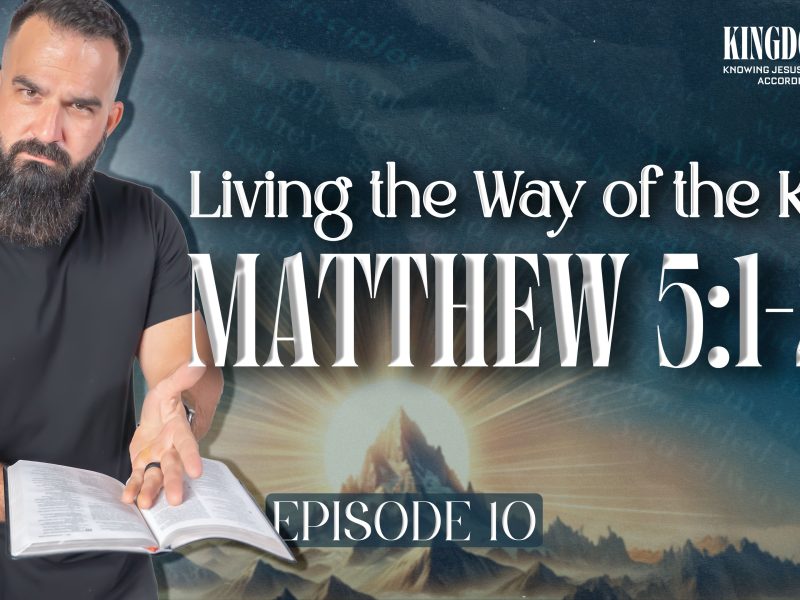
No Comments